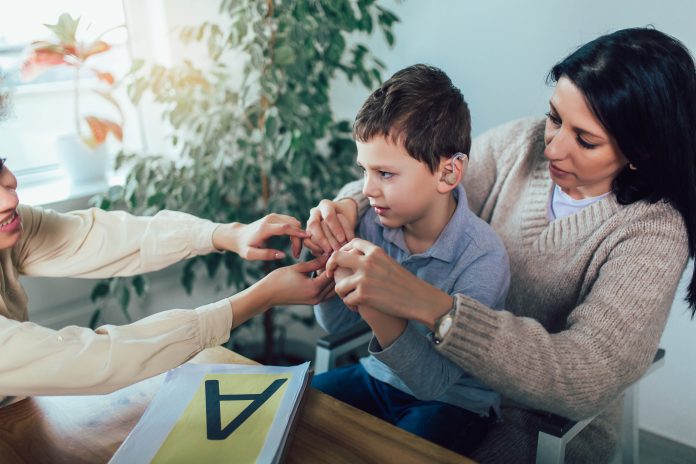Mark Hopkinson, Head of the Centre for Deaf Education, City Lit states why we need to talk more about hearing loss
One in six people in the UK (1) has some form of hearing loss which ranges on a spectrum from profound deafness to mild hearing loss. The strategies which individuals with hearing loss use to communicate effectively vary hugely. British Sign Language (BSL), lipreading, hearing aids, cochlear implants or a combination of strategies can be used to ensure those with hearing loss can understand and be understood.
We are encouraging debate around understanding and knowledge of hearing loss and acknowledgement of how it can unnecessarily exclude people from activities which many would consider a fundamental right. Activities such as accessing healthcare at a time and place which is convenient for them or carrying out their civic duty by serving on a Jury in a crown court. Research conducted by the NHS (2) has shown that almost three-quarters of deaf people (74%) felt that their employment opportunities were limited because of their deafness and over two thirds (68%) have felt isolated at work. A lack of education and access to training is helping to keep barriers to communication in place.
Our research has revealed that:
• 94% of people surveyed don’t know more than two signs in BSL.
• 60% of people would like to learn to communicate better with deaf people and those with hearing loss, which is positive news we need to build upon.
• 61% of people feel that those who are deaf, or who have some level of hearing loss, are marginalised in society because not enough people know how to communicate with them effectively. They are right. We can change this.
Generally speaking, BSL, lipreading and managing hearing loss courses provide students with an incredible range of tools, indeed they can use in both their professional and personal lives. Further, deaf awareness training for friends and family members and organisations is important in improving communication with deaf and hard of hearing people.
We strive to influence the UK Government and policymakers about the importance of BSL education and we welcomed the then Secretary of State for Education, Damian Hinds MP’s, announcement in November 2018 that the Department for Education and Ofqual were in the process of reviewing proposals for a BSL GCSE. Equally, we have welcomed the London Mayor’s commitment to fully fund BSL Level 1 and 2 for deaf adults through the adult education budget.
Access to a BSL GCSE and increased funding are incredibly important steps in the right direction. BSL courses encourage more people to learn and perfect this much-needed skill. This includes those who use BSL as their first language or those who are fluent in English and wish to learn BSL, as well as hundreds of deaf migrants who move to London every year and require specialist tuition. City Lit knows that BSL Teacher Training is vital if the demand for learning is to be met. Training to teach deaf people who are fluent in BSL how to teach the language to others is also important, in our view.
However, BSL is not the only strategy for communication for those with hearing loss.
Lipreading is proven to be successful for those who seek support if they lose their hearing as adults and we believe that everyone who seeks help for hearing loss should receive advice on lipreading from their GP or Hospital. Unfortunately, there are too few classes across the UK and access is a postcode lottery. City Lit’s #HearMyLips campaign goal is to train more teachers to teach more classes nationwide.
References
(1) Quantity of those with hearing loss – Why we need to talk more about hearing loss https://www.actiononhearingloss.org.uk/about-us/our-research-and-evidence/facts-and-figures/
(2) NHS findings https://www.england.nhs.uk/wp-content/uploads/2017/09/hearing-loss-what-works-guide-employment.pdf











